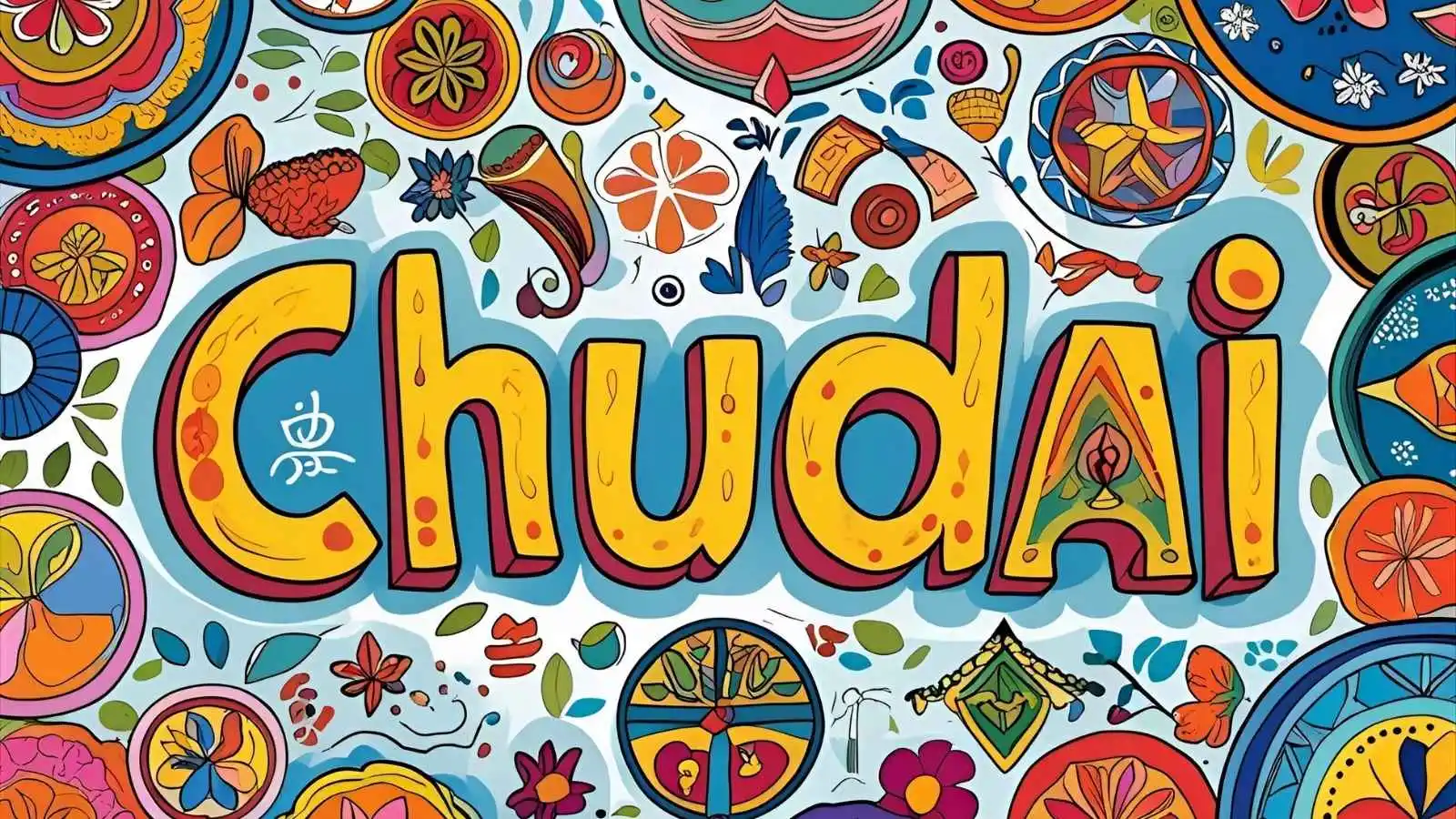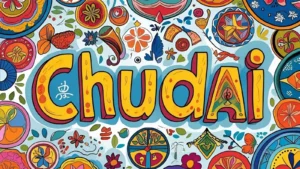Language is a living, breathing entity—it evolves, adapts, and absorbs meanings across cultures and time. One such term that many people frequently search but rarely understand properly is “Chudai”—a word rooted in Hindi and Urdu slang.
While its explicit nature makes it unsuitable for many conversations, it’s vital to comprehend its meaning in English, when it’s used, why people seek alternatives, and what polite expressions can replace it.
In 2025, with a growing emphasis on digital civility, cross-cultural understanding, and online decency, it’s crucial to learn how to navigate sensitive words like “chudai” with professionalism and nuance. This article will go deep into:
- The real meaning of “chudai” in English
- How to interpret it based on context
- Why it’s often used in private or informal settings
- 10 alternatives you can use in personal, professional, or casual conversations
- Expert examples to help you understand tone, usage, and intention
Let’s break this down with precision, clarity, and cultural respect.
🧠 What Does ‘Chudai’ Mean in English?
The word “Chudai” (चुदाई) is an informal and vulgar Hindi/Urdu slang term that directly refers to sexual intercourse, specifically in a graphic or crude manner.
It stems from the verb “chudna”, which also has explicit sexual connotations. This term is not appropriate for formal or respectful communication.
🛑 Important Note: While “chudai” is often heard in everyday speech or digital memes, using it in professional or cross-cultural settings may come off as rude, offensive, or ignorant.
📚 Accurate Translation: Chudai in English
Here are a few English equivalents that represent “chudai”, depending on tone:
| Tone | Equivalent Phrase in English |
|---|---|
| Formal / Medical | Sexual intercourse |
| Casual / Neutral | Having sex |
| Vulgar / Slang | F**king (explicit, offensive in public) |
| Euphemistic | Intimacy / Making love |
As you can see, the choice of wording matters immensely, and understanding context is key.
🤔 Why Do People Use the Word ‘Chudai’?
The use of “chudai” is often associated with:
- Informal banter or locker-room talk
- Adult content or explicit storytelling
- Low-brow humor on the internet (memes, reels, or comments)
- Curiosity among non-Hindi speakers trying to understand local slang
- People attempting to learn about sexual expression in South Asian culture
However, just because it’s commonly used doesn’t make it appropriate. Knowing how to express similar ideas in polite and respectful language is a sign of emotional intelligence and social maturity.
🌐 Cultural and Social Implications in 2025
In today’s digital-first world where translation tools, AI, and global content are at your fingertips, words carry more weight than ever before. A simple mistranslation or inappropriate use of a slang term can:
- Offend people across cultures
- Trigger content bans or platform suspensions
- Reduce your credibility in academic or professional conversations
- Violate Google AdSense and SEO guidelines
That’s why, especially in 2025, it’s better to replace vulgar terms like “chudai” with nuanced, respectful language that retains meaning without offending sensibilities.
✨ 10 Polite, Casual, and Contextual Alternatives to ‘Chudai’
Below are 10 high-quality alternatives to “chudai,” grouped by tone and situation—with real-life examples. These are ideal for various contexts and can elevate your language while preserving meaning.
1. Sexual Intercourse
Context: Medical, academic, or formal reporting
Example: “The study focused on the health outcomes of individuals engaging in consensual sexual intercourse.”
Why it works: It’s technical, respectful, and universally understood.
2. Making Love
Context: Romantic, literary, emotionally intimate
Example: “They were deeply in love and expressed it by making love.”
Why it works: Softens the intensity of the act with emotional resonance.
3. Being Intimate
Context: Semi-formal, emotional, suitable for media or counseling
Example: “They became more intimate as their relationship deepened.”
Why it works: General enough for polite use, yet clear in implication.
4. Getting Physically Close
Context: Youth education, family-safe wording
Example: “They decided to get physically close after years of dating.”
Why it works: Evokes closeness without sounding explicit.
5. Having Relations
Context: Conservative, religious, or censored environments
Example: “They were involved in a relationship and had relations.”
Why it works: Used in many formal or censored settings.
6. Sleeping Together
Context: Everyday casual conversation, modern media
Example: “It was clear they were sleeping together, even though they hadn’t made it public.”
Why it works: Mild slang; popular in TV, fiction, and discussions.
7. Hooking Up
Context: Casual, millennial/Gen-Z language
Example: “They hooked up during the college festival.”
Why it works: Common among younger audiences, doesn’t sound vulgar.
8. Becoming Physically Involved
Context: Polished, formal-yet-modern tone
Example: “They were physically involved but not emotionally committed.”
Why it works: Offers a balanced, diplomatic tone.
9. Sharing a Night Together
Context: Romantic, poetic, story-driven settings
Example: “They shared a night together that changed everything.”
Why it works: Symbolic, not direct, but clearly understood.
10. Consummating the Relationship
Context: Marital or ceremonial references
Example: “They consummated their marriage after the wedding.”
Why it works: Old-fashioned, formal, but perfect for legal or cultural writing.
🎯 When to Use Each Expression — A Quick Breakdown
| Situation | Best Alternative |
|---|---|
| Formal writing | Sexual intercourse, Consummated |
| Romantic storytelling | Making love, Sharing a night |
| Friendly chats | Hooking up, Sleeping together |
| Medical/psychological | Being intimate, Physically involved |
| TV/media censorship | Having relations, Physically close |
Using the right expression at the right time is what separates effective communicators from everyone else.
💡 Why It’s Important to Avoid Slang like “Chudai”
🔒 1. Digital Safety
Using explicit language online can get your posts flagged, shadowbanned, or reported on platforms like YouTube, TikTok, or Instagram.
📈 2. SEO and Monetization Risks
Google AdSense and other monetization platforms have strict policies against offensive language. Using terms like “chudai” in your content can affect your ranking, revenue, or even get your domain blacklisted.
🌍 3. Cross-Cultural Misunderstanding
If your audience spans across countries, using a crude term can be seen as disrespectful or ignorant, especially in professional settings.
💬 Stand For and Meaning in Text
In digital communication, words like “chudai” might pop up in WhatsApp chats, Reddit posts, or Instagram captions, often misinterpreted or misused. Sometimes it’s paired with abbreviations or hidden in emojis.
For example:
- “Let’s do it tonight 😈🔥” — can be a casual way of implying the act.
- “We had a night 🛏️😉” — an innuendo often used in storytelling.
- “Stand for something” — in contrast, this means having values, not giving up, which is often misunderstood by non-native English speakers.
Understanding what slang actually means vs. what it’s interpreted as is a key part of building a responsible online presence in 2025.
✅ Key Takeaways
- “Chudai” in English translates to sexual intercourse, but its vulgar tone makes it inappropriate for general use.
- Contextual, polite alternatives like making love, being intimate, or sleeping together are better suited for modern conversation.
- Avoid explicit terms in blogs, content, or messaging apps to ensure safety, professionalism, and monetization.
- Use tone-appropriate language to sound intelligent, respectful, and globally aware.
Conclusion :
Words matter—especially in a world as interconnected as ours in 2025. While “chudai” is a term that might show up in memes, jokes, or casual banter, it carries a heavy cultural and emotional charge. Instead of using crude words, opt for smarter, classier expressions that reflect maturity, awareness, and empathy.
Whether you’re writing a blog, messaging someone, or simply expanding your vocabulary, choosing the right words at the right time is the mark of a truly fluent speaker.










